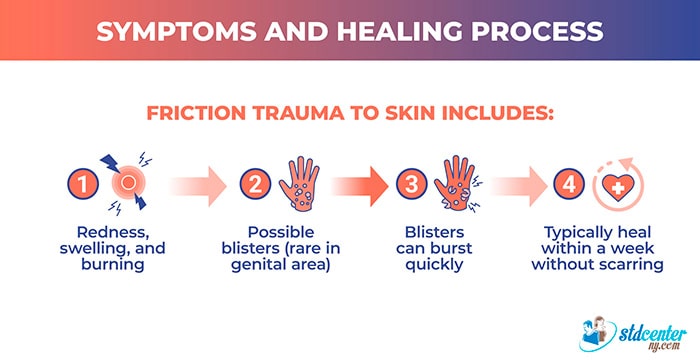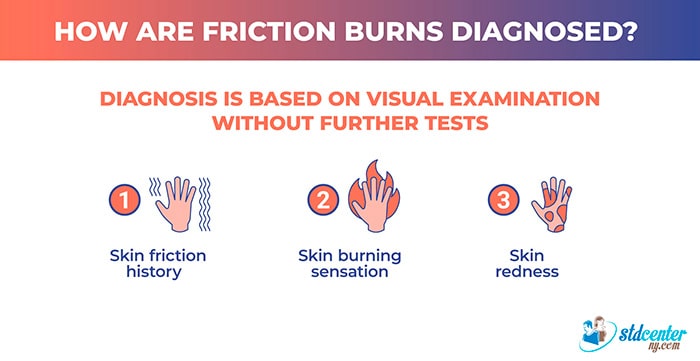How Do Friction Burns and Blisters Happen?
Friction burns occur when the skin repeatedly rubs against a surface. This results in injuries in the outer layer of the skin, known as the epidermis. The extent of the injury depends on the amount of friction exerted.

Common Areas Affected
Moisture can increase friction in the genital area, making it more susceptible to burns. The most affected areas include:
- - Shaft of the penis (for males)
- - Head of the penis (for males)
- - Pubic area (for both males and females)
- - Entrance of the vagina (for females)
- - Vulvar area (for females)
Common Causes
Friction burns can result from:
- - Vigorous masturbation
- - Intense, prolonged intercourse
- - Wearing tight clothing during exercise
- - Aggressive drying with a rough towel after showering
Symptoms and Healing Process
When the skin experiences friction trauma, it goes through a few stages [3] Friction Burns: Epidemiology and Prevention https://pmc.ncbi.nlm.nih.gov/articles/PMC3188131/ :
1. The area becomes red and swollen, often causing a burning sensation.
2. A blister may develop within hours, usually tense and filled with clear fluid (friction blisters are rare in the genital area).
3. The blister can either burst quickly near the surface or last several days if it is more significant.
4. Typically, friction burns or blisters heal within a week without leaving scars.


How Are Friction Burns Diagnosed?
Diagnosis is usually straightforward and based on visual examination without further tests(2).It generally involves three key factors:
1. Recent history of rubbing or friction
2. A burning sensation and discomfort experienced right after or the following day
3. Redness and irritation on the skin


Recognizing these factors can aid in effectively managing and preventing genital friction burns and blisters. [2] Management of perineal and genital burns https://pubmed.ncbi.nlm.nih.gov/8343557/
Source
-
Friction burn
https://en.wikipedia.org/wiki/Friction_burn -
Management of perineal and genital burns
https://pubmed.ncbi.nlm.nih.gov/8343557/ -
Friction Burns: Epidemiology and Prevention
https://pmc.ncbi.nlm.nih.gov/articles/PMC3188131/